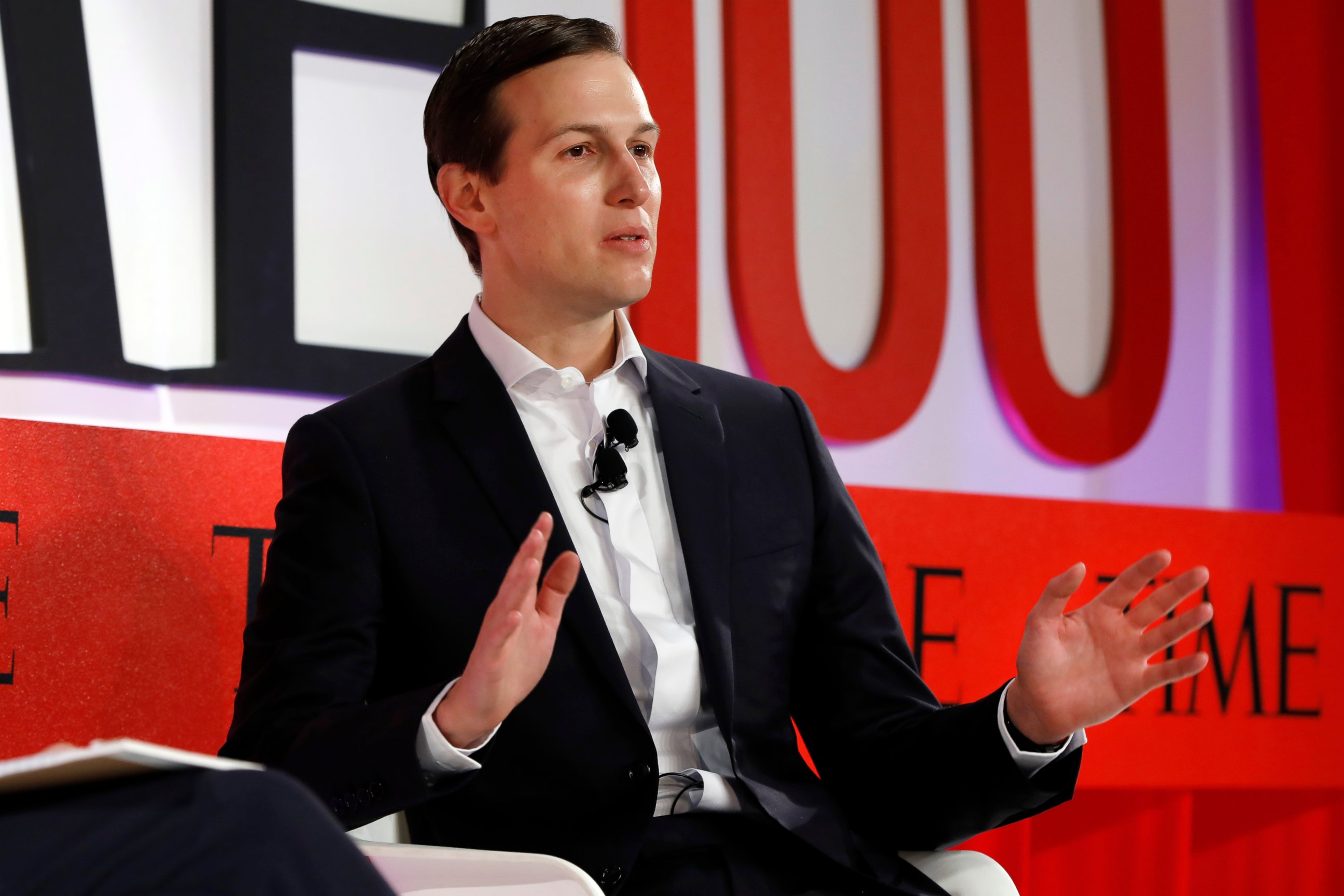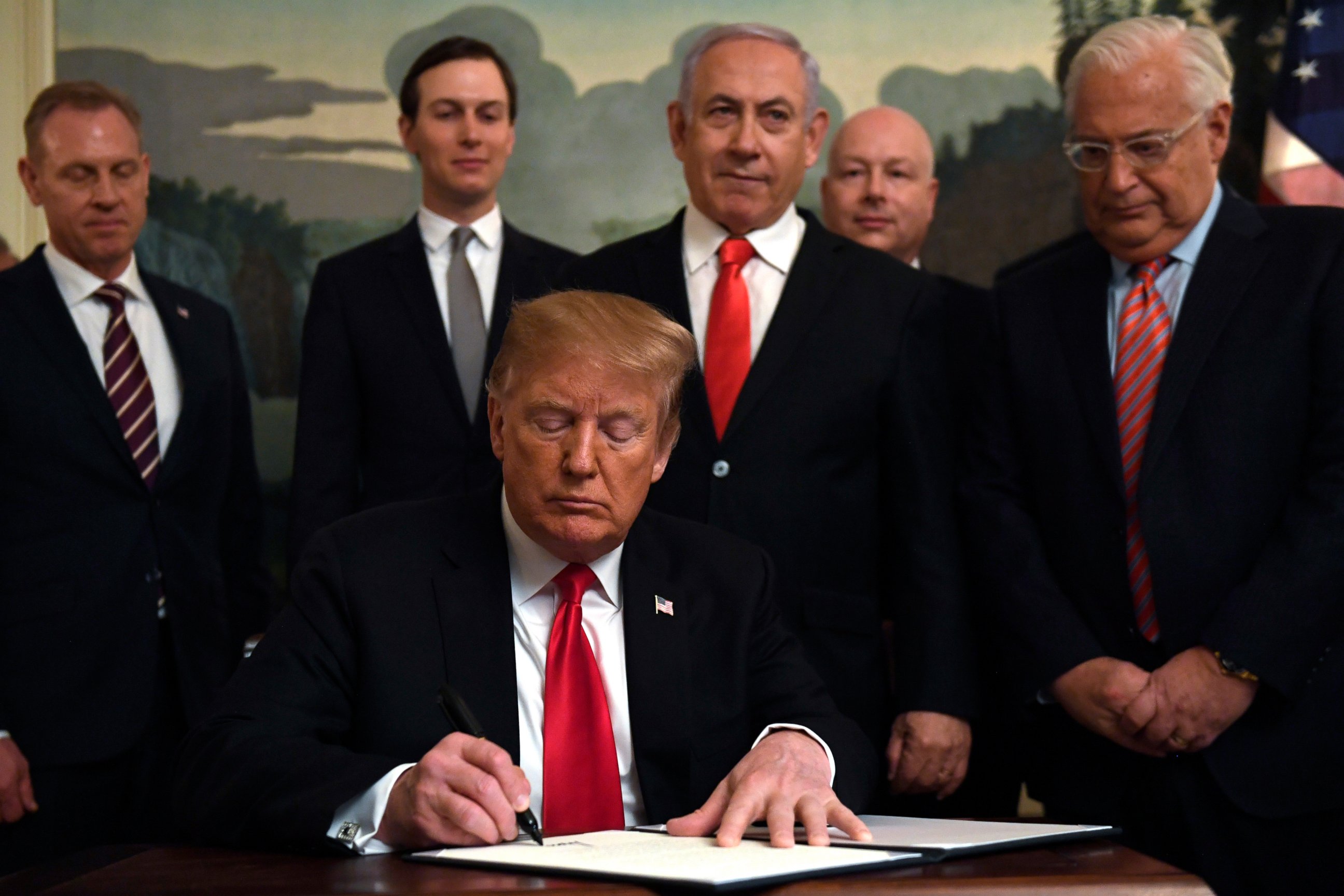In rare discussion of Middle East peace plan, Jared Kushner expresses hope for breakthrough
Kushner has been tasked with creating a roadmap to peace.
Speaking about the administration’s much-anticipated Middle East peace plan at the Washington Institute in the nation's capital Thursday night, Jared Kushner said the administration has developed a "detailed" document that looks to address the core issues of the Israeli-Palestinian conflict, while providing an economic vision.
Kushner said the administration’s plan avoids using traditional, "high-level" terms as a way to try to breakthrough the jammed debate and focus on the underlying issues.
"A lot of disagreement seems to be about these high-level concepts," Kushner said, referring to drawing from his real estate career experience to argue that working through the details -- rather than a focus on the big ideas -- can lead to a breakthrough.
"You can say two state, I realized that means different things to different people," Kushner said. "So we said let’s just not say it, let’s just work on the details of what this means."

Kushner, Donald Trump's son-in-law, said the president has not seen the latest draft of the peace plan, but he's "been involved from the very beginning."
"He hasn't seen the latest draft because we've still refining, but the president's been very involved in creating this, creating the strategy, and he's a very hands-on leader," Kushner said.
Kushner said the plan doesn’t attempt to please all sides on all issues and instead is based on what he said should be acknowledged as truths. He pointed to the administration’s prior decisions to formally recognize Jerusalem as Israel’s capital and move the embassy, as well as recognizing the Golan Heights as Israeli territory, as examples.
"Long term, I think it helps because what we need to do is recognize truths," Kushner said.
In a discussion on annexing the West Bank, Kushner had an apparent slip of the tongue in referring to "two countries": "Our job is to try to find a solution between the two countries, and that's -- really, the disease."

Kushner said the administration is finding reasons to be "optimistic" and said that "if people look at it with a fresh perspective … hopefully that leads to a breakthrough."
"I don’t think there’s ever a perfect time to do this," he said. "But I do think we feel now is a good time to put something out there."
Without revealing details, Kushner expressed hope that the economic components of the forthcoming plan can help lead to progress, so that "we can break the cycle and get focused on betterment of life."
"I think we developed a good business plan," Kushner said, again sliding into real estate speak.
Kushner repeatedly emphasized that Israel’s security is a top priority but said that ultimately resolving the conflict is critical to Israel’s long-term security. He said it’s also critical that the Palestinian people have "dignity" and "opportunity."
"I do think this is something that the president will be proud of," Kushner said, making a joke that when you work for the president you try not to disappoint, but when you work for your father in law, disappointing him is not an option.
Kushner has previously said the plan is set to be released following the conclusion of the Muslim holiday of Ramadan, which ends in early June.




